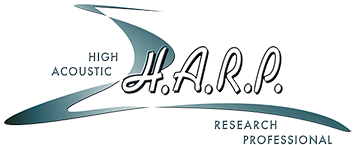


In a context where technology evolves rapidly, H.A.R.P. integrates Artificial Intelligence (AI) into its processes to enhance acoustic analysis.
This synergy between human expertise and technological advancements enables us to deliver acoustic solutions with greater precision and efficiency.
The adoption of machine learning models allows us to process vast sets of acoustic data quickly and effectively.
This approach facilitates the accurate identification of noise pollution sources and the proposal of targeted interventions to reduce noise in complex environments.
The implementation of AI optimizes data collection and analysis processes.
Automated processing techniques allow the interpretation of complex information and the delivery of detailed reports in reduced timeframes while maintaining a high level of accuracy.
The integration of AI provides significant advantages to our clients, including:
Predictive Analysis: The ability to identify and prevent potential acoustic issues before they occur, enabling timely corrective actions.
Resource Optimization: Reduction of risks and unforeseen costs while ensuring operational continuity.
At H.A.R.P., innovation is fundamental to delivering high-quality services.
The integration of AI represents a significant step in our evolutionary journey, enabling us to address future challenges with a technological and proactive approach.
Our continuous exploration of AI's potential allows us to propose increasingly advanced solutions, prioritizing result quality and customer satisfaction.